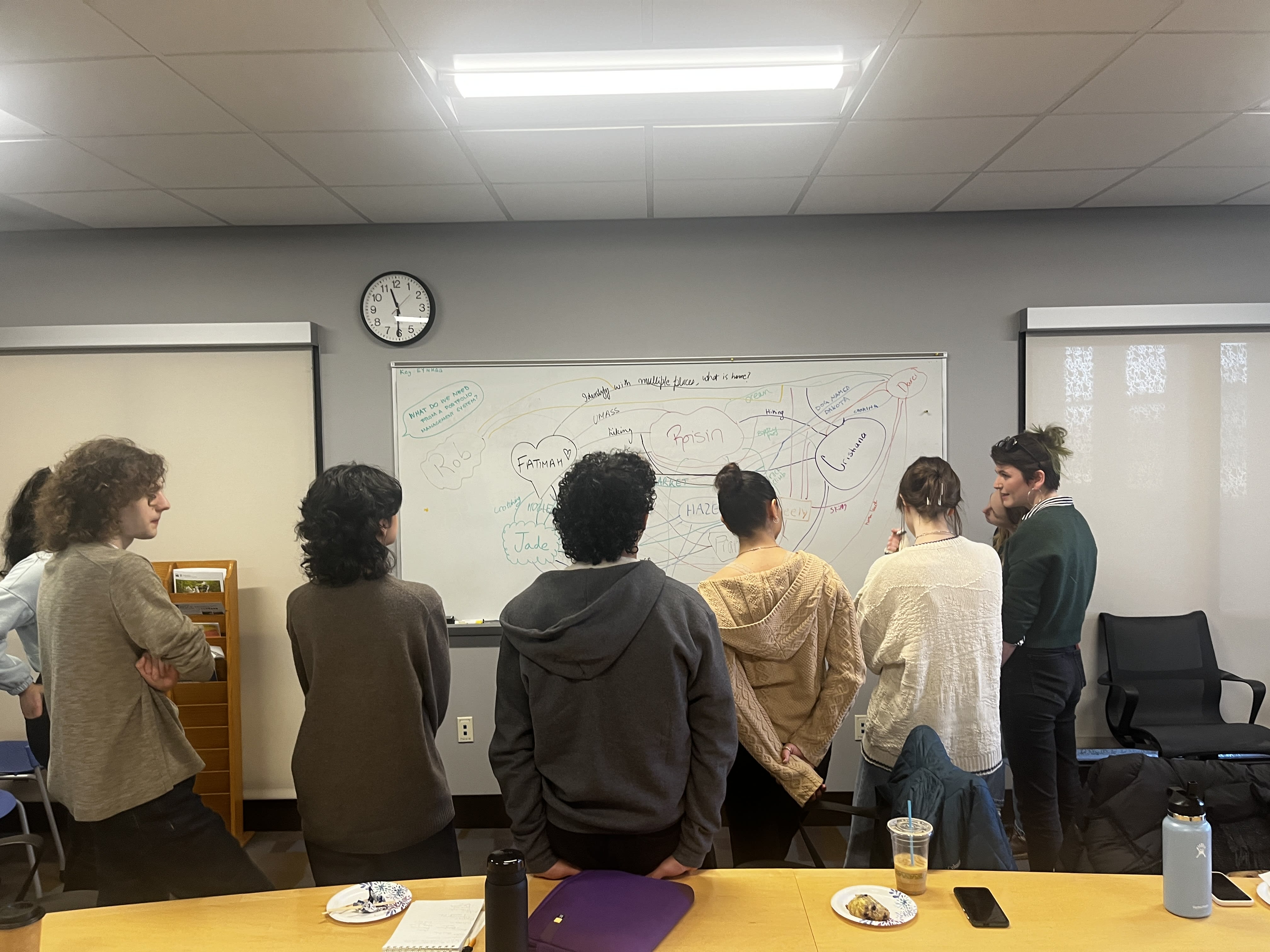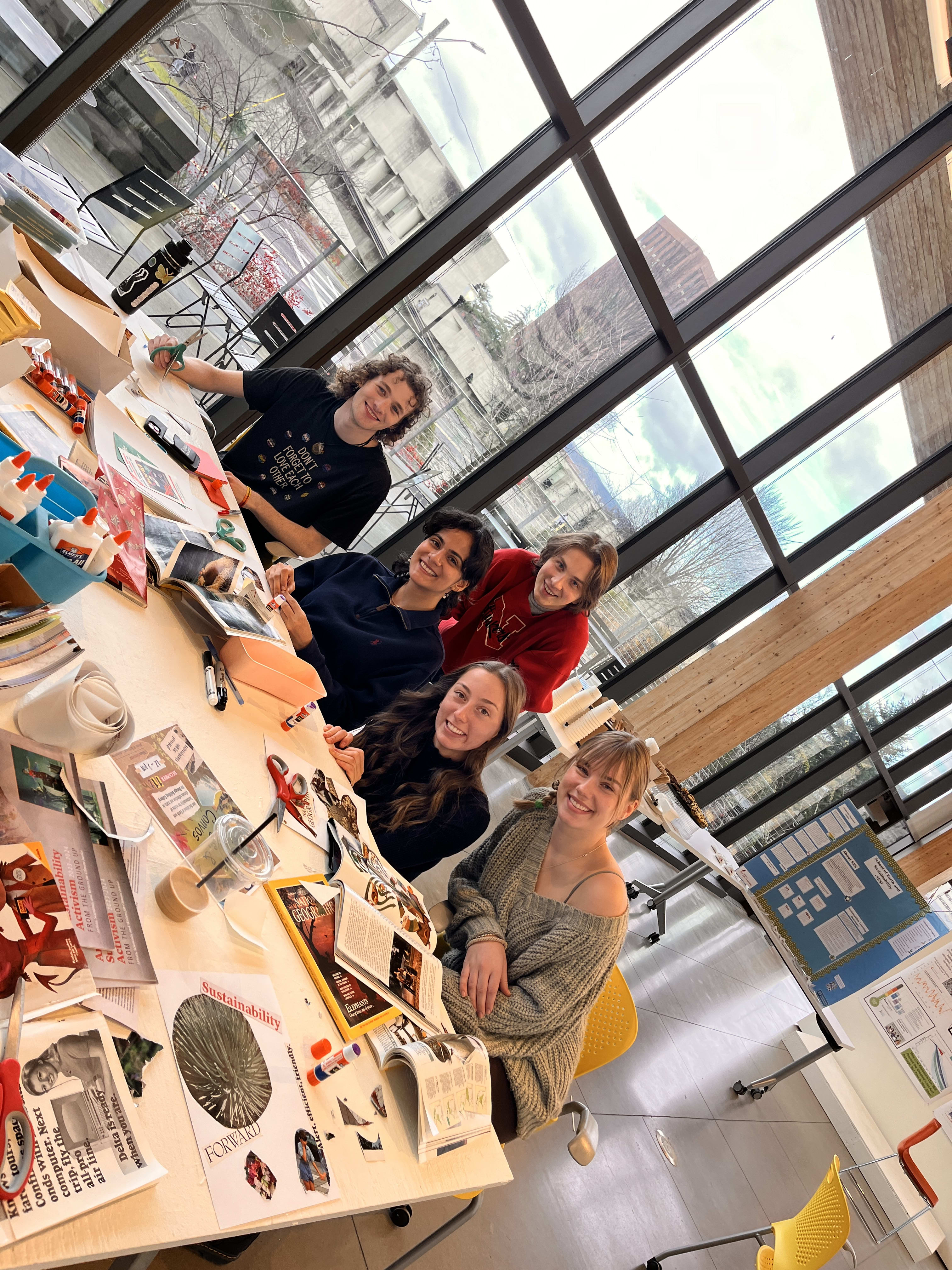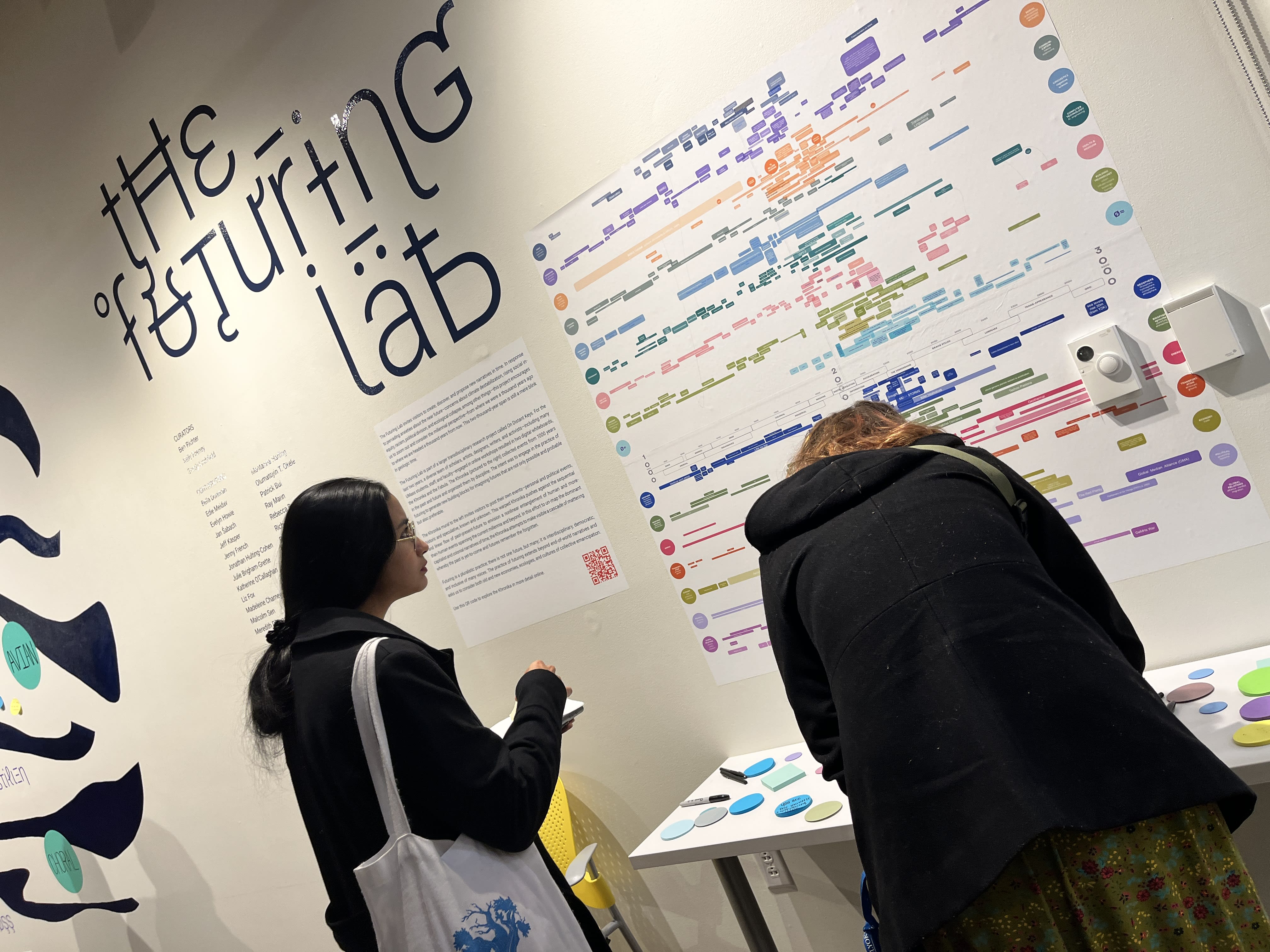UMassGives 2024

Sustainability is an applied and engaged interdisciplinary field of study that provides students with the knowledge and skills to envision and create transformative changes while pursuing a variety of career paths. UNESCO reports that 91 percent of students agree that “their place of study should actively incorporate and promote sustainable development.” Increasingly, UMass Amherst students are demanding opportunities to pursue sustainability in every College across campus. Nearly 70% of our undergraduates have taken one or more sustainability courses. According to the most recent campus sustainability survey, 81% of UMass undergraduates believe climate change will negatively impact their generation's quality of life, with 55.9% of students interested in learning more about sustainability or gaining hands-on experience.

The School of Earth & Sustainability (SES) is deeply committed to training the next generation of leaders and to meeting students’ desire for sustainability-connected learning and training. Since its inception in 2016, SES has stood at the forefront of transdisciplinary education, research, creative work, and engagement aimed at understanding and solving the critical sustainability challenges facing natural and built environments in Massachusetts and around the world. SES currently links five academic departments across two colleges with the goal of elevating to pan campus. Together, we are a vibrant learning community dedicated to fostering the next wave of scholars, innovators, and leaders in sustainability.
The complex socio-environmental challenges of the 21st century require transformative approaches and a new workforce equipped with integrated skills, knowledge, and hands-on experience. Your generosity enables SES to offer impactful training opportunities through living lab learning experiences. In these experiences, students engage directly with the scientists, scholars, and practitioners on campus and in surrounding communities to apply their knowledge in real-world settings. It also provides the much-needed capacity for transferring new knowledge and skills into our broader community and region. Our student-centered approach enriches education and career outcomes but also drives innovation, our growing green workforce, and the development of practical, resilient, and just solutions for a changing planet.
| Rank | Prize | Department/Group/RSO | Donors |
|---|---|---|---|
| 1 | $2,000 | Student Alumni Association | 128 |
| 2 | $500 | UMass Women into Leadership | 90 |
| 3 | $500 | Professional Writing and Technical Communication | 36 |
| 4 | College of Education Student Emergency Fund | 10 | |
| 5 | Men's Lacrosse | 8 | |
| 6 | Finance Department | 6 | |
| 7 | Management Department | 6 | |
| 8 | Women's Lacrosse | 6 | |
| 9 | Isenberg Class of 2024 Senior Gift | 6 | |
| 10 | Commonwealth Honors College | 5 | |
| 11 | CICS Dean's Opportunity Fund | 5 | |
| 12 | The Galbraith Prize | 4 | |
| 13 | Mark H. McCormack Department of Sport Management | 4 | |
| 14 | Men's Swimming & Diving | 4 | |
| 15 | WMUA | 4 |

| Rank | Prize | Department/Group/RSO | Donors |
|---|---|---|---|
| 1 | $2,000 | Protect Our Breasts | 112 |
| 2 | $500 | University Without Walls | 69 |
| 3 | $500 | Landscape Architecture & Regional Planning | 31 |
| 4 | Department of Psychological and Brain Sciences | 29 | |
| 5 | Indian Classical Arts Society | 27 | |
| 6 | Public Interest Technology Club | 17 | |
| 7 | Accounting Department | 15 | |
| 8 | Club Softball | 12 | |
| 9 | Operations & Information Management Department | 11 | |
| 10 | Hockey | 10 | |
| 11 | Men's Lacrosse | 6 | |
| 12 | College of Natural Sciences Scholarships | 5 | |
| 13 | Mark H. McCormack Department of Sport Management | 4 | |
| 14 | Institute of Diversity Sciences | 4 | |
| 15 | Football | 4 |

| Rank | Prize | Department/Group/RSO | Donors |
|---|---|---|---|
| 1 | $2,000 | Minuteman Marching Band | 87 |
| 2 | $500 | Fencing Club | 74 |
| 3 | $500 | Active Minds | 65 |
| 4 | Climbing Club | 60 | |
| 5 | HackUMass | 33 | |
| 6 | Department of Journalism | 26 | |
| 7 | Society of Hispanic Professional Engineers | 13 | |
| 8 | UMass Recovery | 10 | |
| 9 | Hockey | 8 | |
| 10 | Marketing Department | 6 | |
| 11 | Football | 5 | |
| 12 | Mark H. McCormack Department of Sport Management | 4 | |
| 13 | Field Hockey | 4 | |
| 14 | Finance Department | 3 | |
| 15 | College of Natural Sciences Scholarships | 3 |

| Rank | Prize | Department/Group/RSO | Donors |
|---|---|---|---|
| 1 | $2,000 | The Massachusetts Daily Collegian | 277 |
| 2 | $500 | Men's Ultimate Frisbee | 134 |
| 3 | $500 | UMass CHAARG | 99 |
| 4 | Mark H. McCormack Department of Sport Management | 85 | |
| 5 | The Boltwood Project | 75 | |
| 6 | Ellsberg Initiative for Peace and Democracy | 74 | |
| 7 | Minutemen Racing | 73 | |
| 8 | Mock Trial Team | 66 | |
| 9 | Earthfoods Cafe | 64 | |
| 10 | Doo Wop Shop | 60 | |
| 11 | Muslim Students Association | 60 | |
| 12 | Club Water Polo | 54 | |
| 13 | S#arp Attitude | 50 | |
| 14 | Girl Up UMass Amherst | 40 | |
| 15 | Gospel Choir | 23 |

| Rank | Prize | Department/Group/RSO | Donors |
|---|---|---|---|
| 1 | $2,000 | Stonewall Center | 160 |
| 2 | $500 | Model UN | 71 |
| 3 | $500 | Women for UMass Amherst | 48 |
| 4 | Film Studies Program | 41 | |
| 5 | Department of Biochemistry and Molecular Biology | 13 | |
| 6 | Hockey | 11 | |
| 7 | Sweets & More | 11 | |
| 8 | College of Education Student Emergency Fund | 8 | |
| 9 | Men's Cross Country/Track & Field | 5 | |
| 10 | Women's Lacrosse | 5 | |
| 11 | Mark H. McCormack Department of Sport Management | 4 | |
| 12 | CICS Dean's Opportunity Fund | 4 | |
| 13 | Isenberg Class of 2024 Senior Gift | 4 | |
| 14 | Department of Political Science | 3 | |
| 15 | Baseball | 3 |

| Rank | Prize | Department/Group/RSO | Donors |
|---|---|---|---|
| 1 | $2,000 | Men's Rugby | 167 |
| 2 | $500 | Women’s Rugby Football Club | 122 |
| 3 | $500 | Student Care & Emergency Response Fund | 52 |
| 4 | UMass EMS | 46 | |
| 5 | UMass Hillel | 33 | |
| 6 | Center for Latin Am., Caribbean, & Latino Studies | 31 | |
| 7 | Cape Cod Alumni Group | 21 | |
| 8 | WMUA | 17 | |
| 9 | CICS Dean's Opportunity Fund | 15 | |
| 10 | Hockey | 11 | |
| 11 | Sailing Team | 11 | |
| 12 | Baseball | 9 | |
| 13 | Women's Rowing | 8 | |
| 14 | Men's Soccer | 7 | |
| 15 | Delta Sigma Pi | 7 |

| Rank | Prize | Department/Group/RSO | Donors |
|---|---|---|---|
| 1 | $2,000 | Men's Club Rowing | 216 |
| 2 | $500 | Women's Club Ice Hockey | 123 |
| 3 | $500 | Spanish and Portuguese Studies | 78 |
| 4 | Filipino Student Association | 69 | |
| 5 | Nursing Study Abroad Scholarships | 25 | |
| 6 | Sylvan Snack Bar | 25 | |
| 7 | UMass MannMukti | 25 | |
| 8 | Field Hockey Club | 24 | |
| 9 | Men's Rugby | 19 | |
| 10 | Dean's Fund for Library Excellence | 12 | |
| 11 | Alpine Ski Team | 12 | |
| 12 | UMass IT Internship | 11 | |
| 13 | College of Education Student Emergency Fund | 8 | |
| 14 | Women’s Rugby Football Club | 8 | |
| 15 | Minutemen Dancers | 7 |

| Rank | Prize | Department/Group/RSO | Donors |
|---|---|---|---|
| 1 | $2,000 | Duly Noted | 270 |
| 2 | $500 | Women's Ultimate Frisbee | 148 |
| 3 | $500 | Boxing Club | 80 |
| 4 | Engineers Without Borders | 40 | |
| 5 | Cape Verdean Student Alliance | 32 | |
| 6 | Ballroom Dance Team | 30 | |
| 7 | Vocal Suspects | 27 | |
| 8 | Society of Asian Scientists and Engineers | 27 | |
| 9 | Greeno Sub Shop | 26 | |
| 10 | UMass ALTITUDE | 21 | |
| 11 | InterVarsity Christian Fellowship | 19 | |
| 12 | UMass International Genetically Engineered Machine | 15 | |
| 13 | Cycling Club | 12 | |
| 14 | Women's Lacrosse | 11 | |
| 15 | Gymnastics Club | 11 |


